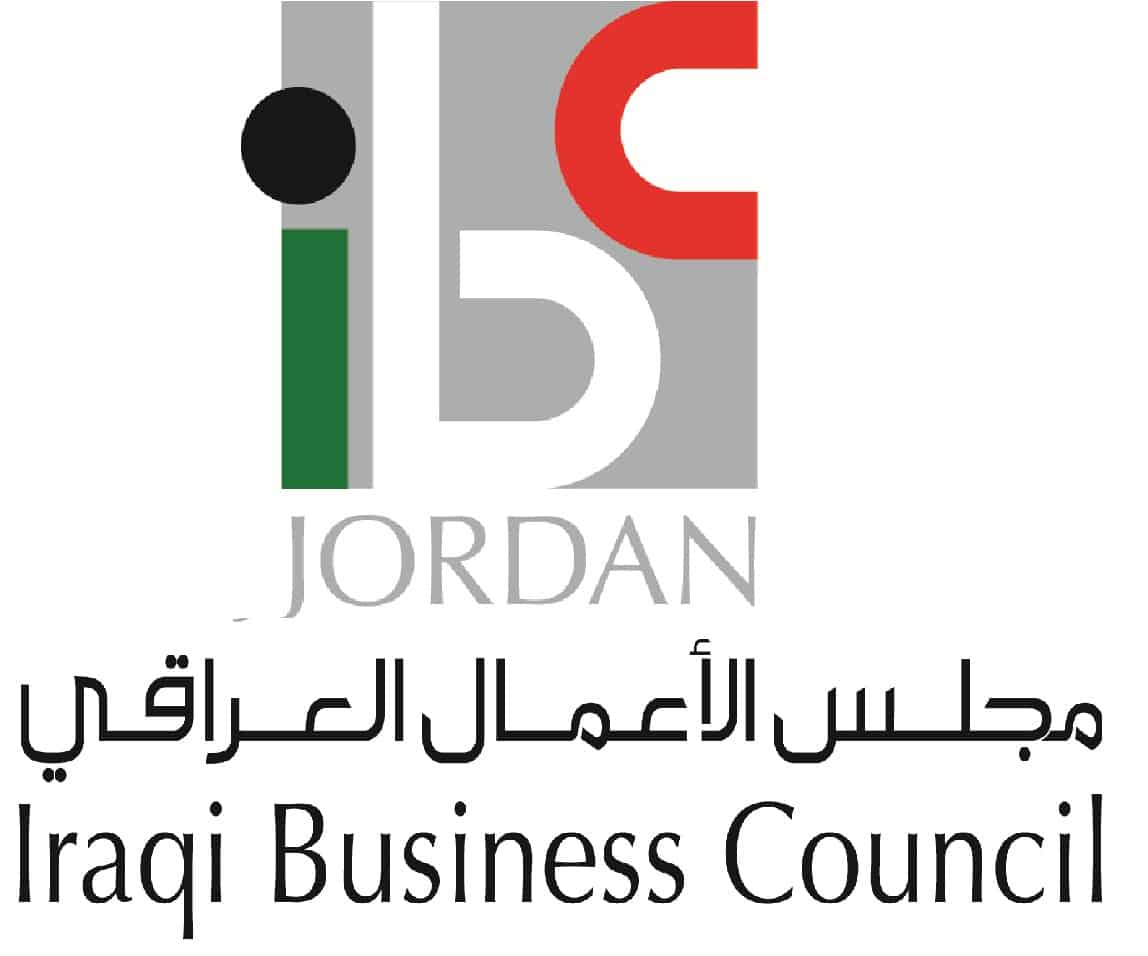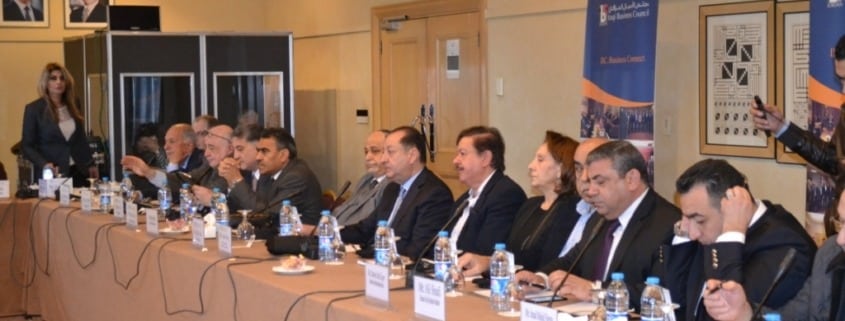HomeActivities Economic Activities IBC Delegation Meets with the International Monetary Fund (IMF) Head of Iraq Mission
A delegation of IBC members met on Sunday March 5th, 2017 at Amman Intercontinental Hotel with the visiting delegation of the International Monetary Fund (IMF) under chairmanship of Mr. Christian Joss / Head of IMF Iraq Mission and the accompanying delegation; Mr. Maxim Noaman / Economist, Mr. Rito Basso / Economic Expert, Mr. Assim Miraj Hussein / Assistant Manager of the Middle East & Central Asia, Mr. Amjad Hijazi / Economist, Mrs. Elaine Creksby / Economic Expert and Ms. Marwa Naasa / Resident Representative of IMF (Iraq and Yemen).
This meeting took place in implementation of the provisions of the agreement concluded between IMF and IBC over holding periodic consultative meetings between members of IMF and IBC.
At the beginning of the meeting, IBC Chairman Dr. Majid Saedi welcomed IMF participants and reviewed developments of the economic situation in Iraq and the obstacles facing the private sector in areas of funding and implementation of projects.
He further stressed the necessity of accelerating the re-opening of the border crossing between Iraq and Jordan to contribute to the revival of the Iraqi – Jordanian economy.
The Chairman’s welcome speech was followed by introductions presented by the participants of both sides on their companies and specializations.
For his part, the Head of IMF Mission Mr. Christian Joss thanked IBC members and members of the delegation of economic institutions and businessmen for their participation in this meeting, expressing his interest to listen to their views and assessments of the present economic situation in Iraq, the volume of projects and revenues compared to last year, inquiring about the possibilities that would increase the State’s revenues including direct and indirect taxes such as taxes on non-oil products, explaining that customs duties rated formerly between 5% – 10% which must be adjusted to up to 30%.
He further elaborated that the fastest gains and revenues are realized from organizing the tax unit which produces tremendous revenues that is usually imposed on the sector of major traders.
The second issue he tackled was the freezing of hiring to address flaccid civil administration, as the high rate of employment in civil service existes only to please some parties without giving regard to the qualification and efficiency of the hired staff, elaborating that this system would lead to deficit in the coming 10 years, in addition to the State’s support extended to everyone’s rations whereas support must be limited only to rations provided to the category of the vulnerable, also reducing the State’s support on oil products as prices dropped down due to the global low oil prices and this support is to be reviewed when oil prices improve.
Regarding the business environment in Iraq, he explained that it is more complex than that in other countries and it is rather slow due to lack of security, in addition to the main problem existing in Iraq represented by the weak banking system.
In order to promote business in Iraq, Rafidain and Rashid Banks must be restructured, wider space be opened for private banks, weakness points must be assessed and methods to combat money laundering must be developed.
Mr. Joss also stressed the necessity of assisting the Iraqi government settling its overdue debts. A report in English and Arabic has been placed on IMF website titled “What is the necessary strategy required to address arrears of international oil companies, Basra Gas, Iraqi Trade Ministry on wheat purchases, Iraqi electricity sector and the contractors arrears”.
The two sides discussed the issue of outstanding arrears of local companies and the immense damage sustained by the private sector including businessmen, companies, contractors and trades who have fulfilled their contractual obligations, but their entitlements were not settled despite the fact that 90% of them had funded these businesses from bank loans and facilities and they are no longer able to fulfill these obligations due to the State’s inability to fulfill its obligations, and they are also unable to complete the remainder of the projects, stressing that the Standby Credit Agreement with Iraq would contribute to saving the Iraqi private sector.
During the meeting, Mr. Joss extended an invitation to IBC members to attend an important meeting scheduled to be held on Friday March 17th, 2017 at Amman Intercontinental Hotel to review the latest developments over the discussions that would take place with the visiting Iraqi government delegation concerning the loan to be presented by IMF to Iraq.
The members discussed with IMF Head of Mission the method of settlement of these loans in future which would overwhelm the Iraqi economy, in addition to a number of significant issues facing the private sector, local and foreign investment.
On IBC side, the meeting was attended by IBC Chairman Dr. Majid Saedi, IBC Vice Chairman and Secretary General Mr. Saad Naji, a number of Board members; Mr. Mekki Faiz, Mr. Muhammad Jawad Jubouri and Mrs. Wasan Khafaji, IBC members; Mr. Hussein Sarraf, Zaid Sarrf, Mr. Ahmed Sarraf, Mr. Fakhri Rishan, Mr. Ayser Tobiya, Mr. Dhargham Jarrah, Mr. Najim Saedi, Mr. Faris Kamal, Dr. Amila Naji, Mrs. Hadeel Hassan, in addition to IBC CEO and a number of IBC guests; Chairman of the Iraqi Economic Council Mr. Ibrahim Baghdadi and Head of Iraqi Contractors Federation Mr. Ali Fakhir Sanafi.



